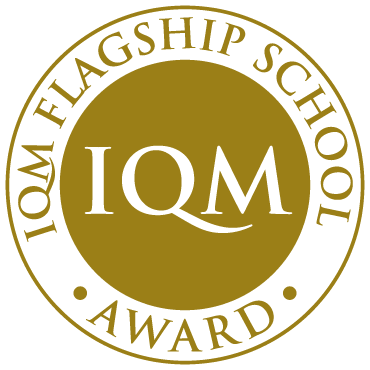Design Technology & Art
Year 7
At Key Stage 3, all students work on a rotation basis so that they can experience all of our creative subjects. In Yr 7, students are introduced to the key basic elements in Art & Design – i.e. line, mark-making, texture, tone, colour and perspective. The aim is to ensure pupils develop confidence in implementing key skills and processes into their work. Projects include ‘Colour Theory’ & ‘Cityscape/Landscape’ which give pupils an insight into the processes of a range of artists.
Year 8
Yr 8 is used to develop basic elements into more conceptual elements of Art & Design such as form, space and contrast. Pupils also build on key skills from Year 7 by developing their use of a range of materials and processes such as collage, digital art and printing. Students will continue to develop their artist analysis skills which will give them an insight into the mind and working of key professionals. Project titles include ‘Me, Myself and I’ and ‘Patterns in Nature’.
Year 9
Yr 9 GCSE Art and Design is used as a foundation to build understanding, knowledge, skills and processes in a multidisciplinary manor. Pupils will have access to a wide range of materials such as such as mod roc, watercolours, acrylics, gouache and collage. Our aim is to develop students understanding of contextual art, including embracing art from different cultures. Students will then be introduced to their first open ended project which is called ‘Identity’.
Examinations offered and topics studied at KS4
AQA GCSE Art & Design
Course Outline
This course encourages an adventurous and enquiring approach to art and design. Students will experiment with a wide range of practical skills and techniques, as well as demonstrate an understanding of past and contemporary art & design practices The aim at the end of each piece of coursework is to produce a personal response to their ideas in the form of a final piece.
Year 10
In year 10, students will now be familiar with the Assessment Objectives of the course. The second unit of work will be introduced which has titles such as ‘Masked Identity’ and ‘Growth and Decay’. Students are encouraged throughout their journey to experiment with the skills they have acquired by abstracting images and using mixed media in their work. Pupils are asked to follow a more independent/self-guided approach in Yr 10 which prepares them for their exams in Yr 11.
Year 11
In the final year of the course, students have some time to complete and refine all of their coursework to a high standard. Coursework is worth 60% of our pupils’ final grade and by December students will be expected to hand in all of their work, ready to be moderated. In January, students will receive the AQA exam paper (set task) which is worth 40% of their final mark. Students will have an allotted amount of time to explore their chosen theme before they complete a ten hour exam which is set aside to produce a final piece. Their final exam will take place towards the end of April and is usually spread across two days.
Design technology – putting your learning into practice
Students combine practical and technological skills with creative thinking to design and make products and systems that meet human needs. They learn to use current technologies and consider the impact of future technological developments.
Students learn to think creatively and intervene to improve the quality of life, solving problems as individuals and members of a team.
They work in stimulating contexts that provide a range of opportunities for designing. Students draw on the local ethos, community and wider world to respond with ideas, products and systems. They combine practical and intellectual skills with an understanding of aesthetic, technical, cultural, health, social, emotional, industrial and environmental issues.
Students evaluate present and past design and technology, and its uses and effects. Through design and technology students develop confidence in using practical skills and become discriminating users of products. They apply their creative thinking and learning to innovate and develop their skills of enterprise.
All students in KS3 experience Design and Technology in the areas of Food and product design.
In year 7 students will develop their knowledge and understanding of ingredients and healthy eating; develop food preparation and cooking techniques; will be able to apply their knowledge to make informed choices; will develop the creative, technical and practical expertise needed to perform everyday tasks confidently; will build and apply a repertoire of knowledge, understanding and skills in order to prepare and cook healthy meals for them self, will evaluate and test their ideas and products and the work of others.
In product design students learn to use a range of tools, machines and materials to develop their skills safely in the ‘Usb Lamp Project’. They are taught to use CAD CAM and will be introduced to some basic programming using ‘Picaxe’. They are encouraged to explore how they could make use of microprocessors to create smart solutions.
Year 8 gives students opportunity to recall and apply the principles of ‘The Eatwell guide’ and the 8 tips for healthy eating; explain energy and how needs change through life, name the main nutrients, sources and functions, adapt and follow recipes using appropriate ingredients and equipment to prepare and cook a range of more complex dishes, demonstrate a wider range of food preparation and cooking techniques, apply the principles of food safety and hygiene, explain the factors that affect food and drink choice and be given regular opportunities to consolidate their literacy and numeracy skills by using them purposefully in order to learn.
During year 8 students will further develop their product design and making skills on the ‘Amplifier Project’. Students follow the ‘Design Process’ model and are given creative freedom to explore the project through a range of contexts that they select. Students build on their skills from year 7 and explore creative solution for the portable amplifier. This extends their use of a workshop environment and helps to develop more advanced CAD/CAM skills in preparation for year 9.
Examinations offered and Topics studied at KS4
EDUQAS GCSE Food Preparation & Nutrition
The WJEC Eduqas GCSE Food Preparation and Nutrition course equips learners with the knowledge, understanding and skills required to make connections between theory and practice so that they are able to apply the principles of food science, nutrition and healthy eating. The course encourages learners to cook, enables them to make informed decisions about food and nutrition and allows them to acquire knowledge in order to be able to feed themselves and others affordably and nutritiously, now and later in life. They will enhance their understanding of nutritional values, dietary consideration and food science.
Component 1
Principles of Food Preparation and Nutrition- Written examination:
Areas of Content
1. Food commodities
2. Principles of nutrition
3. Diet and good health
4. The science of food
5. Where food comes from
6. Cooking and food preparation
1 hour 45 minutes, 50% of the qualification 100 marks
Component 2
Food Preparation and Nutrition in Action- NEA
Non-examination assessment: internally assessed, externally moderated
Assessment 1: 8 hours
Assessment 2: 12 hours
50% of the qualification 100 marks
EDUQAS GCSE Design & Technology
In their design module, students design and make a new wearable data storage system. They use influences from designers past and present to enhance their work. Their creativity is further enhanced using a range of traditional modelling techniques as well as 2D & 3D CAD. Students will develop their communication skills and learn about a range of topic areas such as Energy Generation & Storage, Electronics and Materials. These are taught through a range of interesting project throughout the year.
In Design & Technology students spend year 10 developing their subject knowledge and skills to prepare them for the Controlled Assignment Task (CAT) in year 11. It is also in year 10 that we start to focus more on specialist areas in preparation for year 11. They will further develop both design and making skills/knowledge which cover both engineering skills, electronics, CAD/CAM, 3D printing, presentation techniques, programming and a broad range of more traditional skills such as basic forge work and pewter casting. This is a GCSE qualification and is suitable for pursuing career paths in Engineering and Product Design.
Trips/visits/residential opportunities
Trips have included outings to Hambleton Hall, Feast India, McDonalds and Gorse Hill's Buttercup cafe to explore food products and the food service industry.
We also run a ‘Greenpower’ club that is involved with designing and building an electric car that we use to compete against other schools on an international level. This involves at least three trips a year to various race circuits in the country.
How you can help your child with Design homework
Homework is set using ShowMyHomework and is designed to enhance your child’s progress. Here are some websites that will help you support your child at home
For further information regarding this subject, please visit our departments Protopage for helpful links and sources.
Alternatively, you can follow us on twitter to see what we’re up to in lessons.







 ↑
↑


